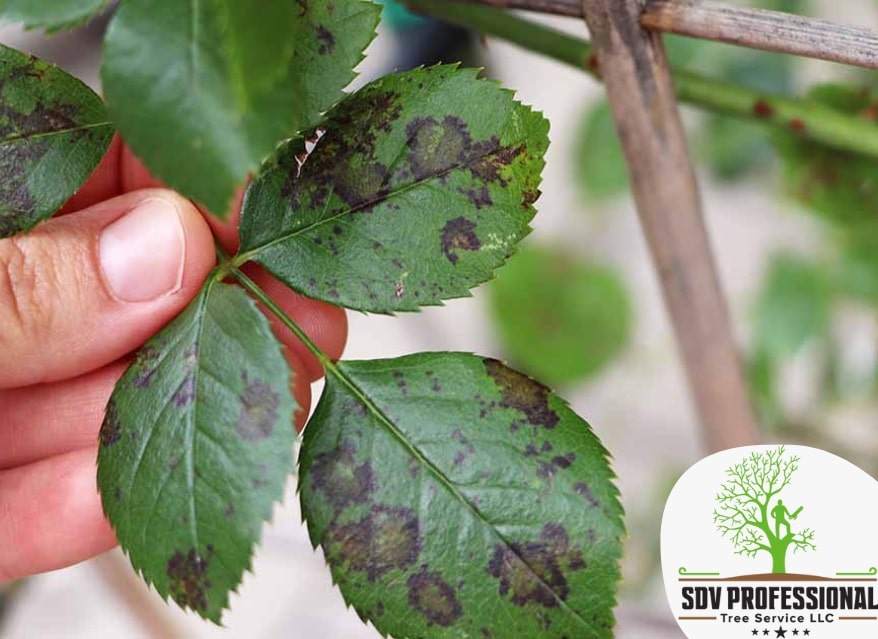
Black spots on Rose leaves: Learn Vital Information
Did you know that black spots on rose leaves are a common disease in these plants? The beauty of the roses attracts the attention of gardeners and flower lovers all over the world. Almost every gardener dreams of growing their perfect roses. If you pay attention to your neighbor’s gardens, you’ll surely find roses in most of them.
However, unfortunately, roses have an enemy, a fungal disease known as a black spot that sprouts wherever roses exist. This disease threatens roses’ health, longevity, and beauty, but you can evade this threat with effective black spot control.
The fungus that causes black spots on rose leaves is Diplocarpon rosae. First, the fungus appears as black marks on the leaves, turning yellow and falling off. It looks horrible and can severely damage the rose bush. Although the black zone is most contagious in humid summers, it flourishes in cold, wet climates.
Keep reading to learn more about this vital information.
Black spots on Rose leaves: What Does It Do?

Be careful if you observe black marks on the leaves of your rose, it can be a fungus. On leaves, black dots will appear as roughly circular black circles. Although it can also form on the undersides of leaves, it often grows on the upper sides. The black circles’ periphery is ragged or feathered, and a yellow ring is frequently around them.
Spots usually start on the bottom leaves and work their way up. They can appear as soon as the leaves begin to unfold. These scars may get larger and then combine. Affected plants frequently lose their leaves, and the entire plant may become defoliated if you don’t address the problem.
Young canes can also become infected by the fungus, which results in blisters that are dark purple or black, and even the blooms may have some red marking. Infected plants will produce fewer flower buds; stressed plants are more vulnerable to issues without leaves.
Environmental Remedy for the Issue – Black spots on Rose Leaves
Sadly, you can not cure rose leaves infected with black spots; rose leaves cannot avoid black spots when they appear. Existing spores wait for favorable conditions by overwintering on contaminated fallen leaves and stems. When water splashes upon the plant in the spring, the spores germinate and spread.
Before infection, spores need to be continually moist for seven hours. In the black lesions, the spores produce acervuli, which are fruiting bodies. These generate spores, which splatter into fresh tissue and propagate the illness.
Learn How to Prevent Black Spots on Rose Leaves
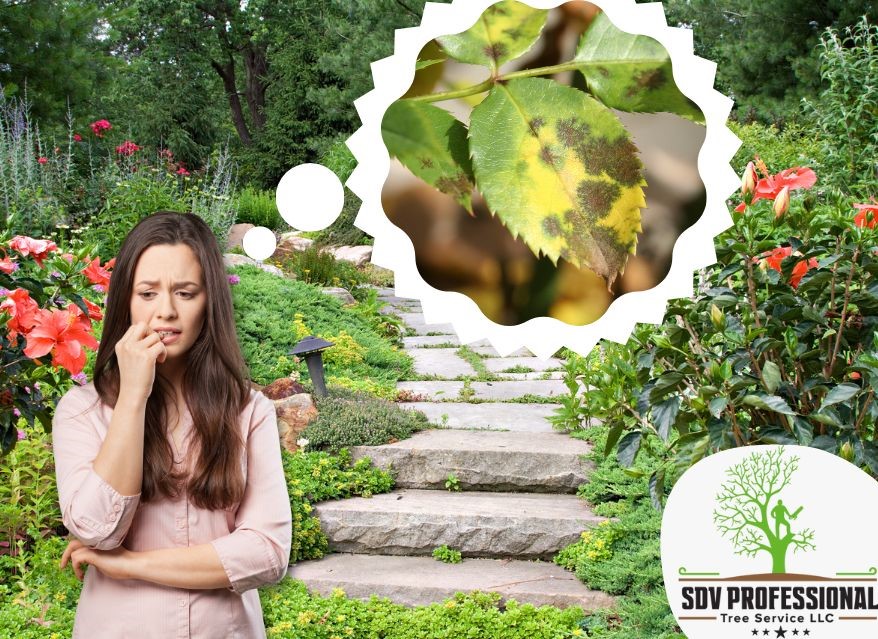
Instead of treating black spots on rose leaves, prevention is the first thing you should keep in mind if you love to have roses in your garden. The following tips aim to minimize the risk that this fungus, Diplocarpon rosae, attacks your rose leaves quickly.
Take into account the following roses’ care habits to keep your plants healthy.
- Ensure that your plants count on the optimal space for air circulation.
- When planting roses, look for solar illumination to avoid humidity.
- Pay attention to the weeds or leaf debris that your plants could have; if you allow it, the fungus will find a favorable condition to grow.
- If the weather conditions don’t allow avoiding humidity, there is something you can do during extended rainy periods, treat your rose leaves preventively with a fungicide.
Give the Plants the Best Conditions for Growth
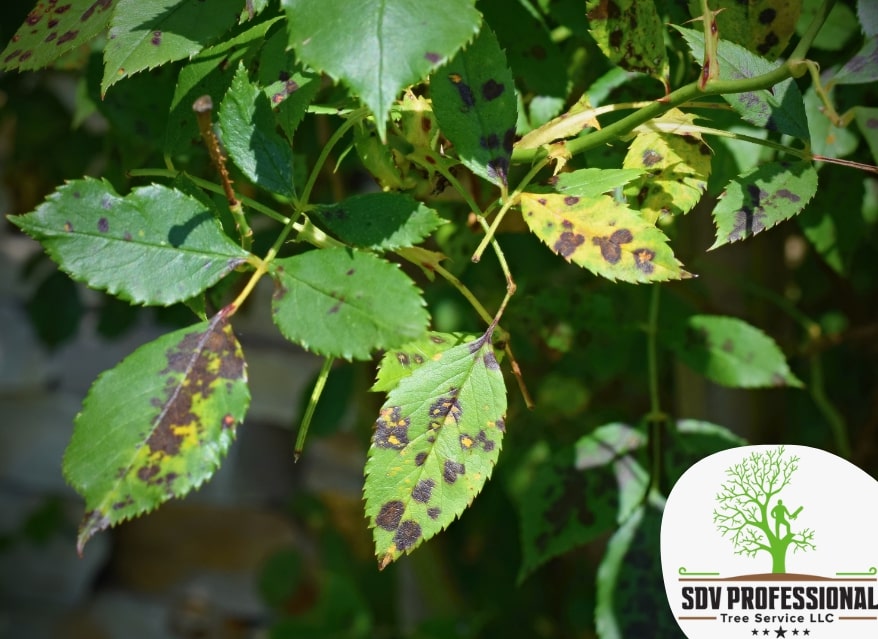
It is true that to prevent plant diseases, a vigorous and robust plant is less prone to problems. Roses prefer a sunny area with drained soil and constant weekly watering. It would be best to plant roses in an area that gets morning sun since it helps dry off the leaf moisture. The best sunlight is continuous throughout the day.
Suitable Airflow
Air should flow freely around and through your rose plants. We recommend not planting roses next to other plants. If the plant becomes too crowded and air cannot pass through, prune to open the spaces between the plants. It can prevent black spots from spreading by providing good air circulation and ensuring the leaves do not cross each other.
Suitable Watering
When watering, avoid getting the leaves wet. Overhead watering increases the apparition of rose black spots due to the favorable condition for the fungus. It is best to avoid the standard sprinklers of the garden and water your plants from the roots.
Advice for your Plant – Pruning
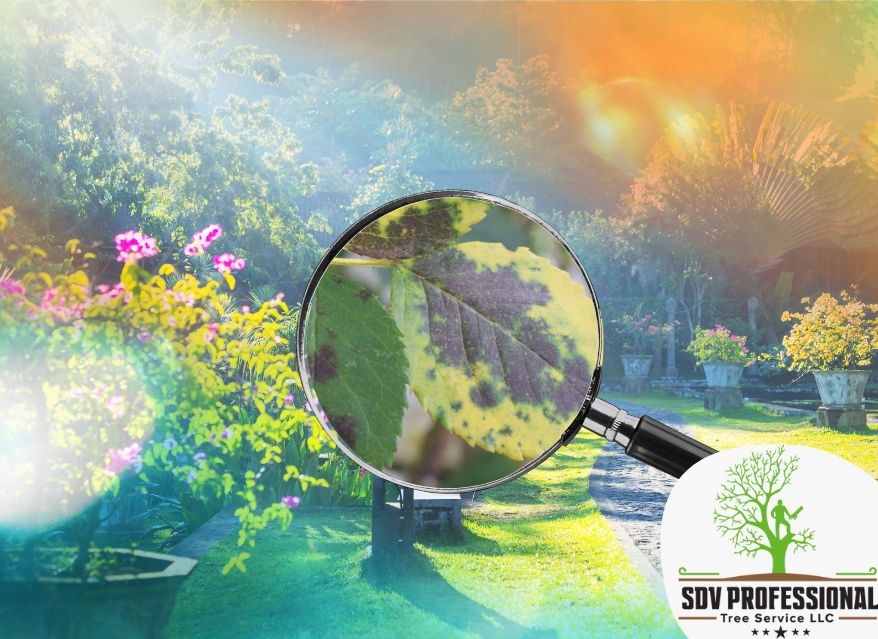
Every autumn, be sure to wipe up all contaminated leaves thoroughly. Remove and discard any leftover leaves when you prune your dormant roses in late winter or early spring. When the circumstances are right, spores can stay on leaves and stems and spread when conditions are right. Ten days after the onset of symptoms, the disease has already begun to spread. Moisture spreads spores faster. Thus, remove any infected leaves that exhibit infection-related symptoms.
Moreover, you should only prune when dry weather and do it 6 to 8 inches below the infection. Between cuts, clean your pruners with alcohol or a 10% bleach solution. Do not compost diseased leaves or canes since the spores could re-infect plants. Additionally, tidy up any fallen leaves and adequately dispose of them.
Advice for your Plant – Mulch
It should spread mulch thickly all around the plants. Mulch keeps soil from dripping onto the plant, and if the fungal spores are in the ground, it will assist stop the fungus from spreading. Because the fungus can grow in a moist environment, check to ensure the mulch doesn’t include any decaying wood.
Tree Services in Huntsville, Alabama
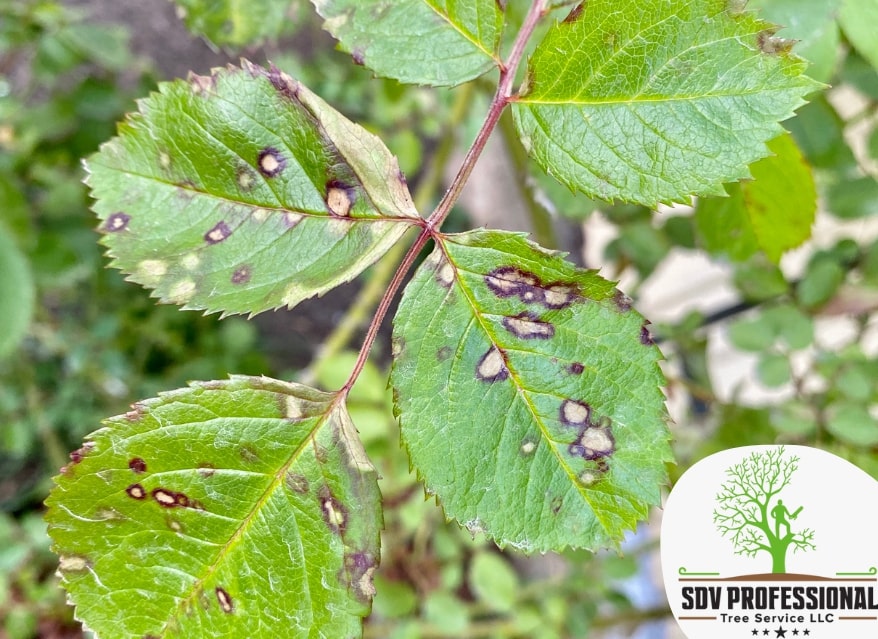
Roses are rated from very resistant to less resistant. You might also opt for a rose resistant to powdery mildew and rust fungus if you are looking for black spot protection.
Enjoy professional tree care services near you by contacting the experts. At SDV Tree Service, we count on several decades of experience and knowledge to enhance your property in no time.
Contact us to take care of your tree needs!
